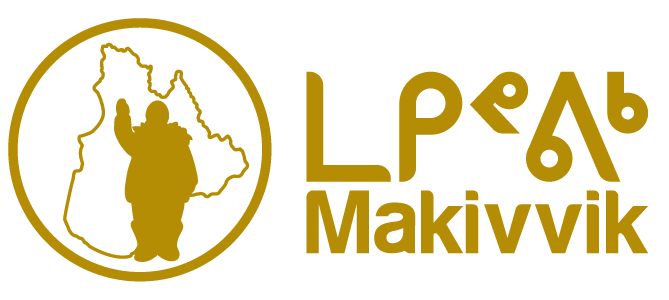ᑲᑎᕕᒃ ᐊᕙᑎᓕᕆᓂᕐᒧᑦ ᐊᔪᖀᒋᐊᕐᑏᑦ ᑲᑎᒪᔩᑦ
Comité consultatif de l’environnement Kativik
Kativik Environmental Advisory Committee
Since 2015, various sea-ice monitoring strategies and equipment have been tested in Salluit, Kangiqsujuaq, and Deception Bay as part of an ice monitoring research project.
This work involves community members from Salluit and Kangiqsujuaq in partnership with the Kativik Regional Government (KRG) and external experts from Institut National de Recherche Scientifique (INRS).
Climate change affects snow and sea-ice conditions, making them unpredictable and creating safety issues for trail users. The Indigenous Community Based Climate Monitoring Program is providing support to develop and implement a community-based trail monitoring program for traditional access trails used by the communities of Salluit and Kangiqsujuaq. These trails may include oth in-land stretches where the nature and condition of the snow cover are essential as well as sea-ice sections where ice thickness and roughness are important factors.
The trail monitoring program includes two components: 1) remote weather observations made available in real-time to the communities through cameras and weather stations, and 2) recurrent monitoring of traditional trails by intergenerational teams of experienced Inuit land users and youth trainees.
As part of the program’s first component, monitoring cameras and weather stations have been installed on sites identified by community members as being more hazardous due to climate change. These instruments send new real-time weather conditions every hour via the website http://caiman.ete.inrs.ca/dashboard. Information available includes visibility, precipitation, wind, snow on the ground, and sea-ice, and helps with decision making regarding safe transportation.
As part of the project’s second component, traditional trails are monitored every year by intergenerational teams of experienced Inuit land users and youth trainees. This work involves georeferenced picture-taking and measuring ice and snow thickness in areas that present risky conditions. Observations of trail conditions are communicated to community members through a verbal report on the local FM radio and the sharing of pictures and details on the Trail Monitoring in Salluit, Deception Bay, and Kangiqsujuaq Facebook page (https://www.facebook.com/IceMonitoringNunavik) and CAIMAN website.
If you are interested in participating in this project, please communicate with the Northern Village of Salluit, the Northern Village of Kangiqsujuaq, or directly with the KRG team at enviro@krg.ca.




